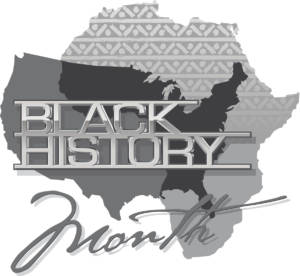Like the United States, Canada celebrates Black History Month during February. This month was chosen because of the birthdays of Abraham Lincoln and Frederick Douglass. The roots of Black History Month began in the early 20th century, but it was in the 1970s when the observance picked up momentum. In Canada, it was in the mid-1990s when the month was officially recognized.
Black History Month has its critics. There are some who say black history is history; it shouldn’t be relegated to one month. Even so, it’s good to remember the contributions of people who often get overlooked in the history books. Not everyone can be remembered in one history text or class. In honor of Black History Month, here are some movies you should see:
Classic Movies About Black History
- “Gone With the Wind” (1939)Margaret Mitchell’s epic book that was made into a movie has its critics. However, what’s interesting to note is that Hattie McDonnell, the actress who played Mammy, was the first black person to receive an Oscar. The producer had to call in a special favor to get permission for McDaniel to be allowed into the no-blacks Ambassador Hotel to accept the prize.
- “Lilies of the Field” (1964)Sidney Poitier became the first black man to receive an Oscar, nearly 25 years following McDaniel’s win. This 1964 classic might seem tame compared to today’s blockbusters, but it’s a great lesson in humility and faith in accomplishing goals.
- “In the Heat of the Night” (1967)Poitier was a big name in Hollywood, and in 1967, he starred as a detective from the North who had to help a racist cop in the South track down a murderer. Through the course of the film, the two men begin to develop mutual understanding. The film represents the changing social-political climate actually occurring throughout the United States.
- “The Color Purple” (1985)This movie, directed by Steven Spielberg, was a highly acclaimed film of its time. It was Whoopi Goldberg’s breakout role, but more importantly, it focused on the plight of the African-American woman. See it in film, read the book or attend the theater version.
More Recent Movies About black History
- “Boyz N the Hood” (1991)John Singleton kicked off a decade that gave us many movies about black men just trying to survive in their own urban city under the veil of violence and discrimination. He was the first and youngest African-American to be nominated for Best Director.
- “Malcolm X” (1992)This film was placed on the National Film Registry because of its historic significance. Denzel Washington lost the Academy Award for Best Actor that year, but he still took many other awards for his role. The film is highly acclaimed and well received, and it’s a must-see for everyone to understand this man who changed history.
- “Hidden Figures” (2016)Released last year, this movie recognizes the contribution of black women to the United States’ space program. It’s based on the true story of three Virginia women who changed history by believing they could.
- “Ray” (2004)Ray Charles is one of the most acclaimed musicians in the world, but he came from very humble beginnings. At the age of seven, Charles went completely blind. Still, he overcame his disability and his heritage to become one of the most influential musicians of the 20th century. This film is a story of his perseverance during a difficult time in history.
There are many other movies that give us glimpses into the history of African-Americans. Spike Lee has made many movies that did not fit on this list. Watch some of these great flicks during Black History Month.




